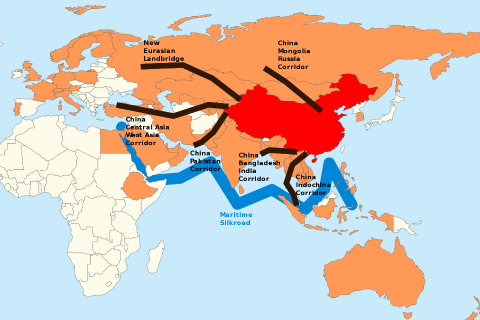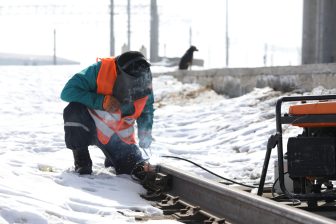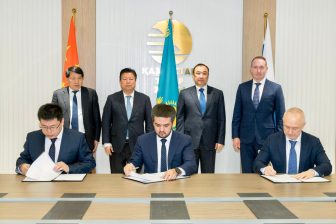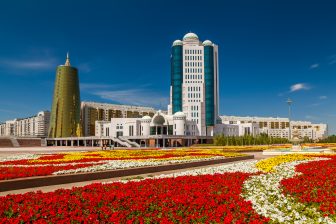
‘TEN-T should be revised looking at the Belt and Road initiative’
When the European Commission revises the TEN-T network in 2023 it should consider the possibilities that the Belt and Road initiative (BRI) offers, said Alain Baron of the Directorate General for Mobility and Transport (DG MOVE).
Baron spoke of possibilities and risks of the Chinese-funded project at the Rhine-Alpine Conference held in Brussels last week. He stated that the EU should take its chances, especially when it comes to eastbound traffic between Europe and Asia. But in doing so, it should take sound decisions rather than just following the Chinese, he urged.
Opportunities
“When reconsidering the core railway network, we should look at the possibilities that the BRI is offering us. For example, what could the development of the Port of Piraeus mean? Maybe we should prioritise a good connection from this port into central Europe”, Baron said.
The Port of Piraeus is managed by the Chinese state-owned shipping company COSCO, which aqcuired a major stake in the Greek port in 2016. Since then, the company invested heavily in its development, as part of the BRI objective of improving the trade routes between Europe and Asia by land and sea.
‘Let us not be naive’
However, Baron was also careful in his approach of the infamous project as he believes Europe should not be naive. “We should not just invest in infrastructure within this framework, but we should consider whether such connections are sustainable.” Baron elaborated that rather than using the top-down approach, it is much more common in the EU to carry out projects that arise out of demand.
The European response to the BRI is a topic of debate, where some argue that the EU should be wary of the rapid economic expansion of the Chinese on the trade route, while others disagree saying that European countries should be less on the defensive and actively get involved in the project. Of the last opinion is Professor Richard Griffiths, who spoke at Port Event held in Spijkenisse last week. “Instead of causing panic about the Chinese influence and development of the New Silk Road, the west should applaud the Chinese contribution and do the same, by tapping into the potential markets along the Eurasian corridor”, he said.
Connectivity Platform
In July 2015 the European Commission (EC) launched a ‘Connectivity Platform’ that should enable both Chinese and European stakeholders to set up joined projects and develop a synergy between the silk road projects and various European infrastructural projects. One year later, the EC drew up a new strategic vision, including the EU perspective of liberalisation of trade, compliance with the international economic system and respecting human rights.
Baron said that the EU Commission would continue to emphasise these standards. As an example, he explained: “Yes, we should develop better border crossings between the BRI countries, but this does not mean less control. This is important in order to avoid, for example, trade of counterfeit products.” The next meeting of the Connectivity Platform takes place in July 2018.





